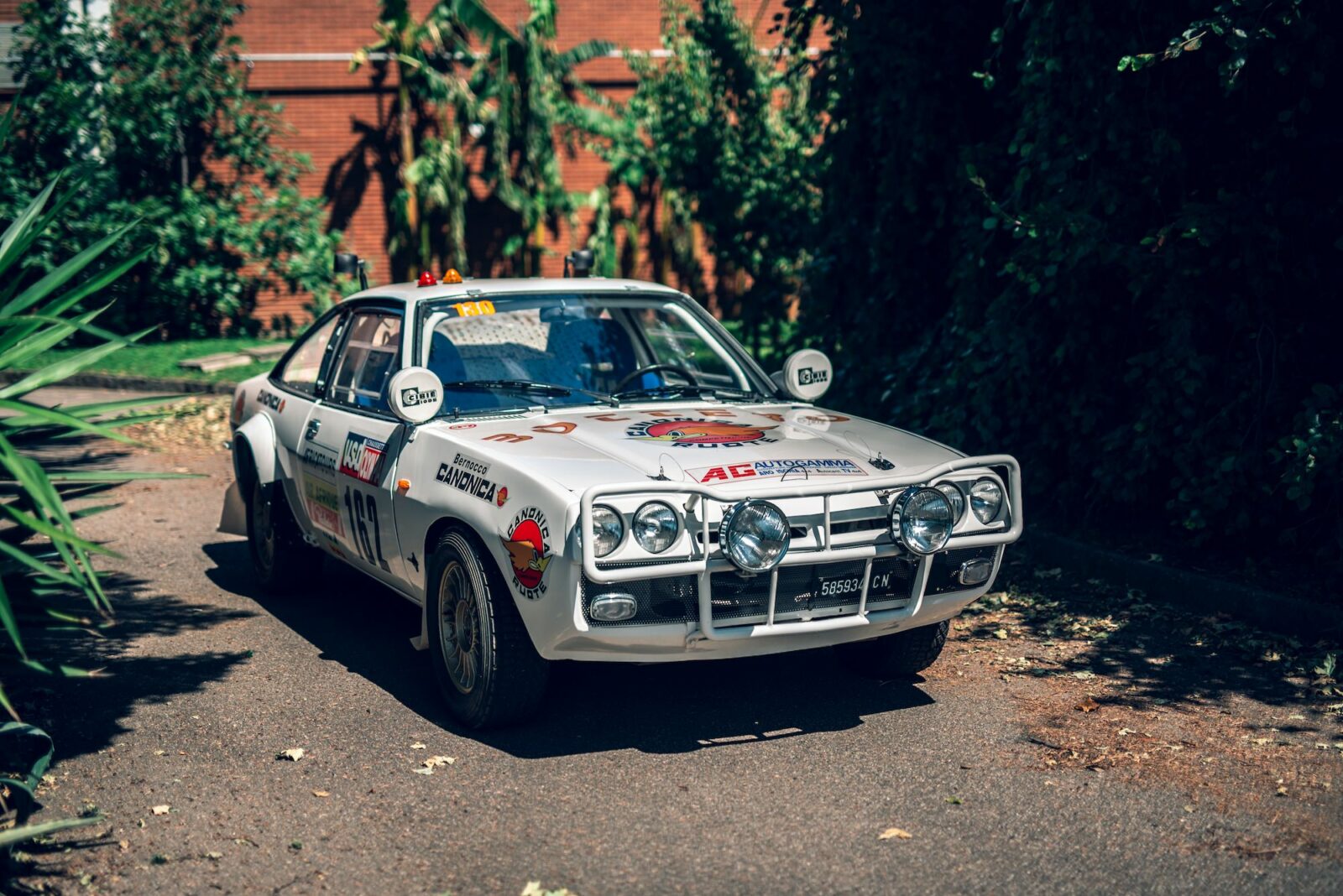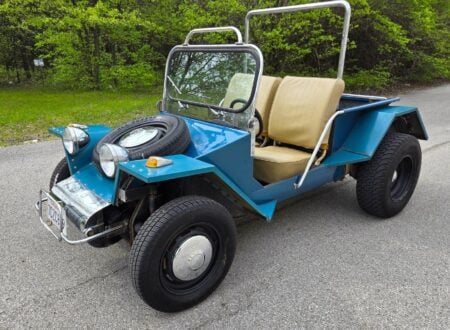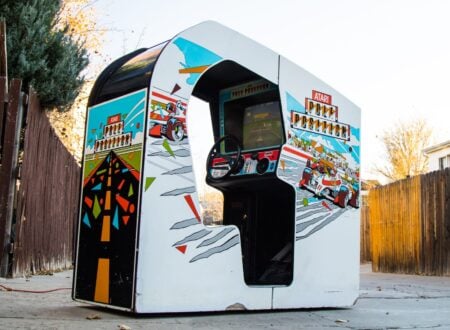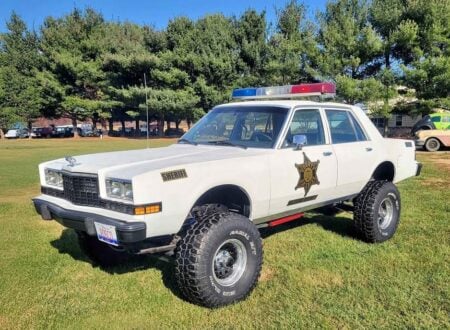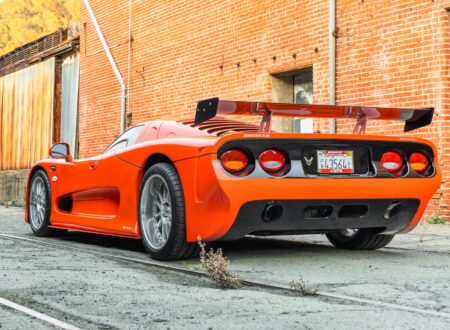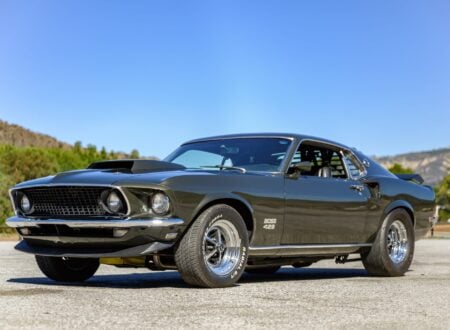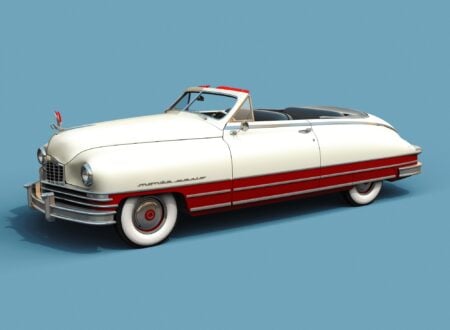This 1976 Opel Manta GT/E was significantly modified in the 1980s in order to go rallying, the pinnacle of its competitive life was its entry into the 1985 Paris-Dakar Rally with Adriano Fissore and Mauro Pretto at the controls.
The car would make it as far as the first special stage, between Ouargla and El Golea in Algeria, where it suffered a race-ending crash. It was then retired and spent many years disassembled, before being restored to its original 1985 Paris-Dakar specification in the early 2010s.
Fast Facts – A Paris-Dakar Rally Opel Manta B
- The Opel Manta B was launched in August 1975 as a successor to the Opel Manta A, which had been produced from 1970 to 1975. Like its predecessor, the Manta B was designed as a two-door sports coupe. However, the Manta B had a significantly more modern and aerodynamic look than the Manta A.
- The Manta B was built on the platform of the Opel Ascona B, which it shared with the Vauxhall Cavalier Mk1 Sports Hatch and the Cavalier Mk1 Coupe. Power was provided by a range of engines from a smaller 1.2 liter OHV unit to the 2.0 liter CIH (cam-in-head) engine, all were inline-fours.
- Opel and its parent company General Motors intended the Manta B (as well as its Vauxhall siblings) to compete with the wildly popular Ford Capri, both cars were relatively evenly matched though the Capri did sell in higher numbers.
- The Manta B you see here was modified for racing in the 1980s and it competed in the 1985 Paris-Dakar Rally. The car had an accident during the event, it was then stored for decades before being restored back to Paris-Dakar specification in the early 2010s. It’s now being offered for sale out of Milan in Italy.
The Opel Manta “B”
The Opel Manta first appeared, in “A” specification, back in 1970 as a competitor for the popular Ford Capri which had been introduced two years earlier int 1968. Both the Manta and the Capri were essentially European equivalents to the American “Pony Car,” a market segment that had been founded by the Ford Mustang back in 1964.
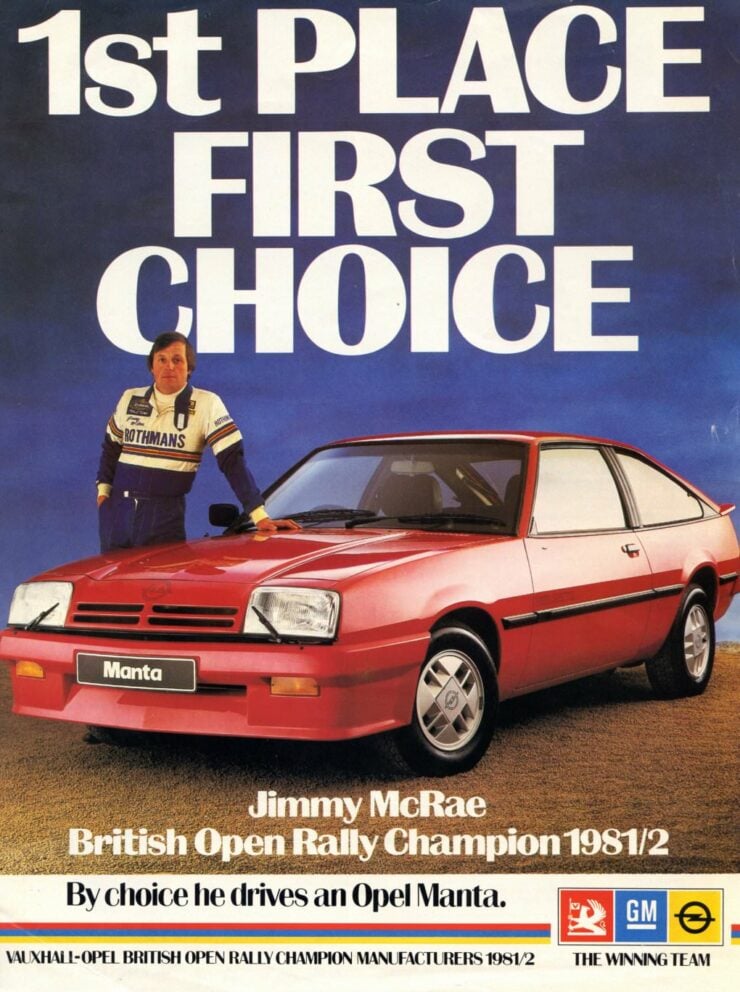

The Manta A was based on the pre-existing Ascona family car, in a similar way the Mustang shared the Ford Falcon platform and the Capri was mechanically based on the Cortina. Platform sharing is nothing new after all.
In 1975 a new Manta would debut, it was called the Opel Manta B and it was based on the newly redesigned Opel Ascona with styling strongly influenced by the 1975 Chevrolet Monza. This new Manta B would be offered with a variety of engines over its production run, though with less diversity of displacement when compared to the Capri.
The smallest and least powerful engine was also the cheapest, as is typically the way, it was the 1.2 liter OHV inline-four. Other engines included a 1.3 liter SOHC unit, and 1.6, 1.9, or 2.0 liter versions of the unusual CIH or “cam-in-head” inline-four.
Power was sent back to the rear wheels via a 4-speed manual, unless the buyer ticked the box for either the 3-speed automatic or the more desirable 5-speed manual.
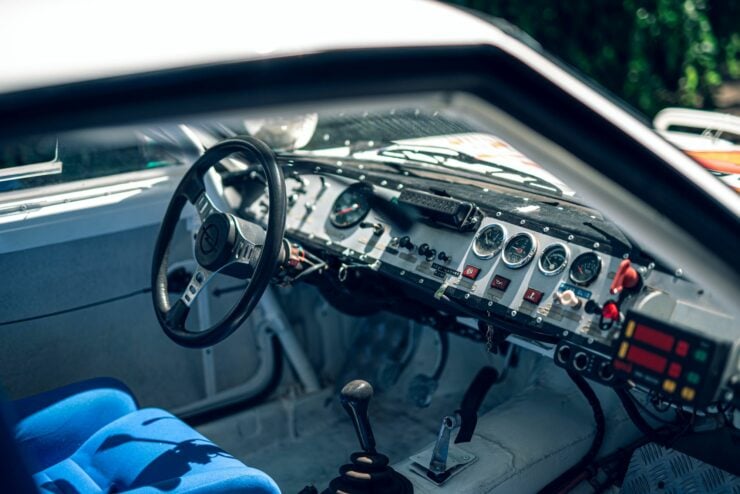

Suspension consisted of double wishbones and coil springs up front with a more traditional a live axle in the rear. Brakes were front discs with rear drums on all cars, and steering was accomplished with a race-driver-preferred unassisted rack-and-pinion arrangement.
All examples of the B were tin-top coupes with a 2+2 seating set up, with a fastback roof design and a modestly sized trunk.
The Manta B remained in production from 1975 till 1981 when it was replaced with the similar but updated Manta B2 which would remain in production until 1988 – beating the Capri which left production back in December of 1986.
The Paris-Dakar Rally Opel Manta B Shown Here
The car you see here is inarguably one of the most historically significant of the Manta Bs that competed in rally in-period. As you’ll remember from the introduction, this car was modified for racing in the early 1980s and then entered by a privateer team in the 1985 Paris-Dakar Rally.
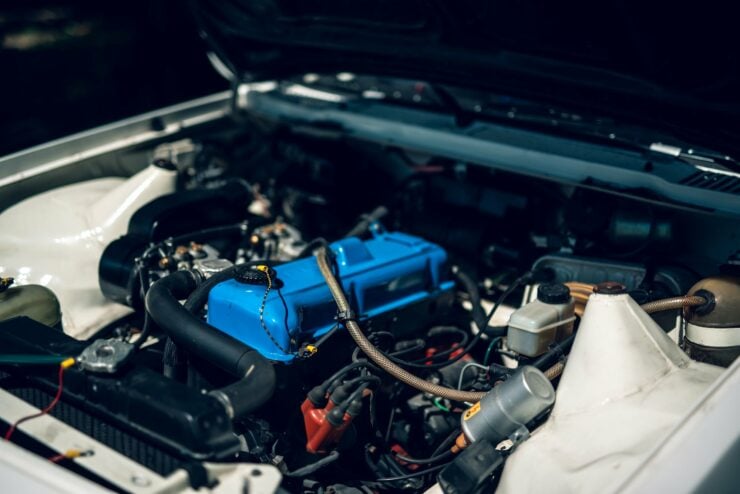

The list of modifications to the stock car was extensive, it included modified bodywork, a stripped interior, the fitment of a roll cage, Sparco seats with four-point Klippan harnesses, and a large-capacity fuel cell. When we say large-capacity we really mean it – it was given a 400 liter fuel tank, which works out to approximately 105.6 US gallons.
The list of mods doesn’t quite end there however, as the car was also given a fiberglass hood, doors, and trunk lid as well as Plexiglass windows in the interests of weight savings.
Spotlights were also fitted, along with heavy-duty bumpers, Canonica alloy wheels, a reinforced tunnel and side members, a custom dash panel with additional gauges, controls, and a Mega Twinmaster TW05 electronic odometer and rally timer.
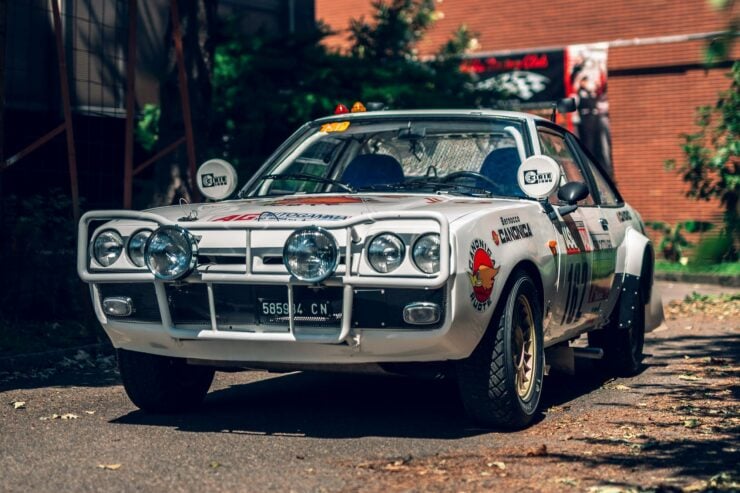

After the car’s untimely crash in the Dakar it was shipped back to Europe before being disassembled and stored. Decades would pass before the car was sold to a new owner, it was restored in the early 2010s back to its original Paris-Dakar specification and entered into the 2014 Maroc Challenge.
The car is now being offered for sale out of Milan in Italy with various articles and photos documenting its rally use. If you’d like to read more about it or register to bid you can visit the listing here on Collecting Cars.
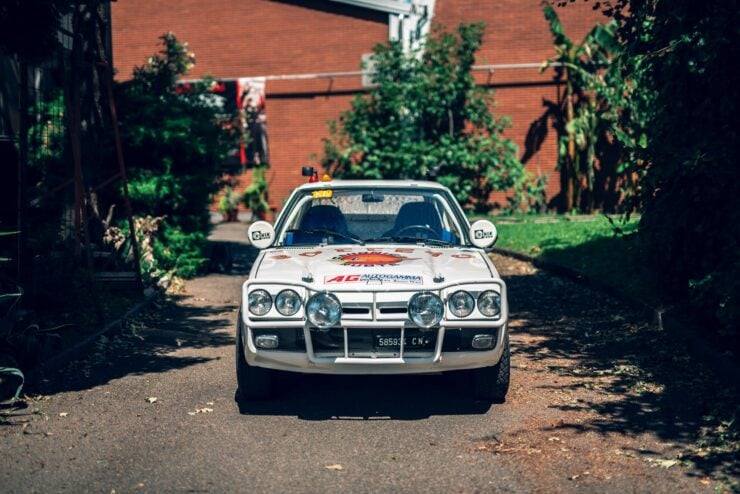
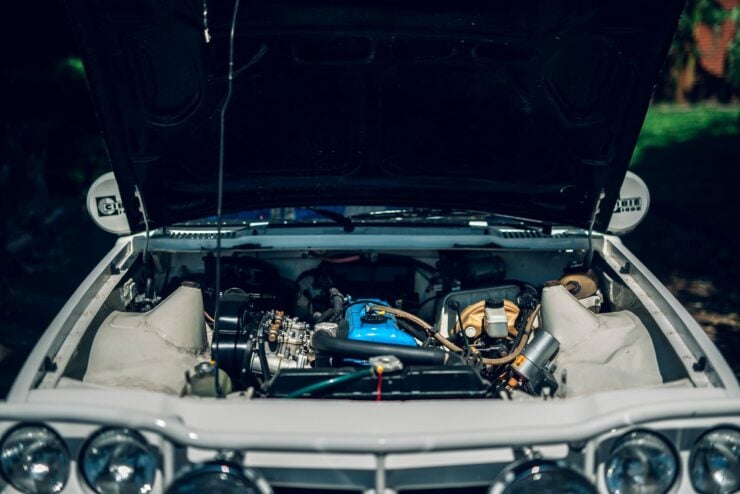
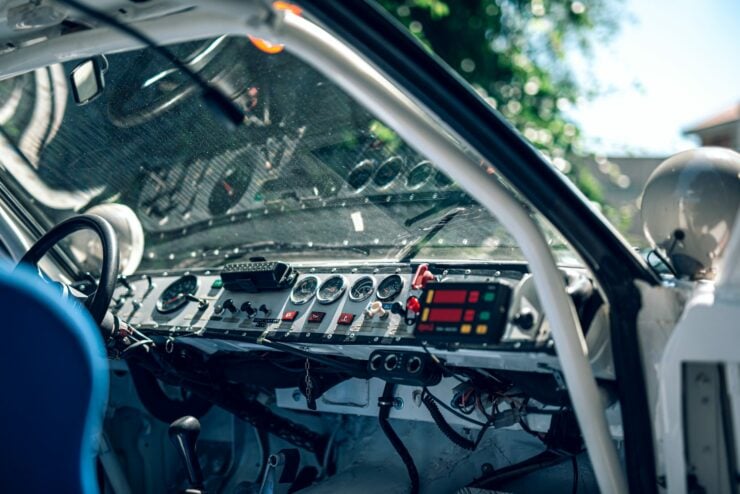
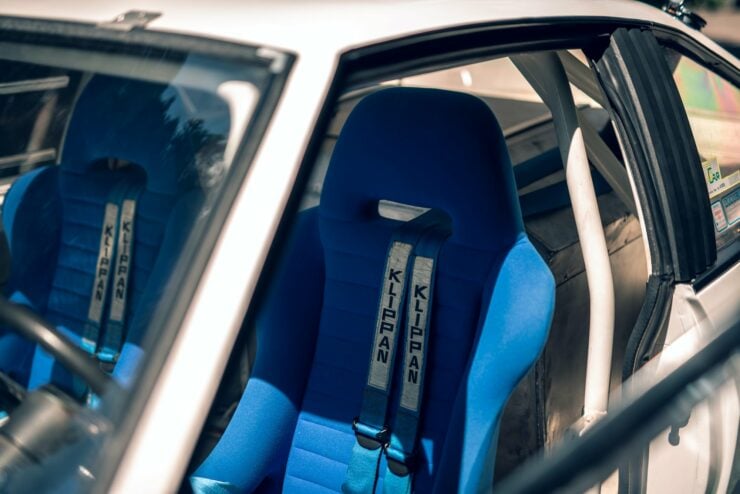
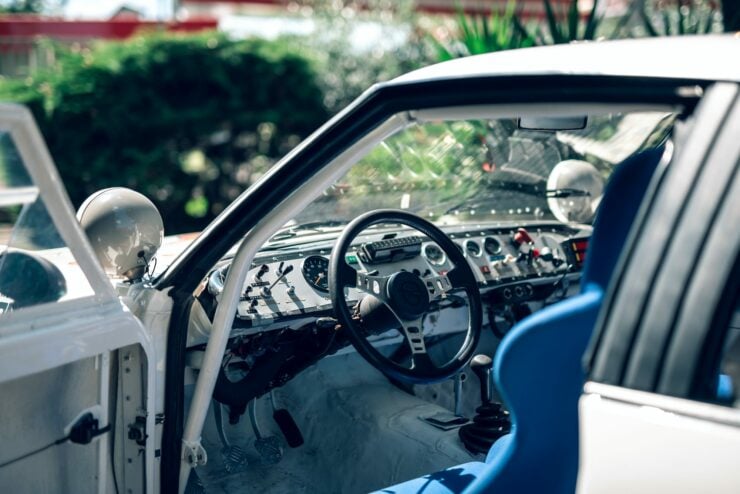
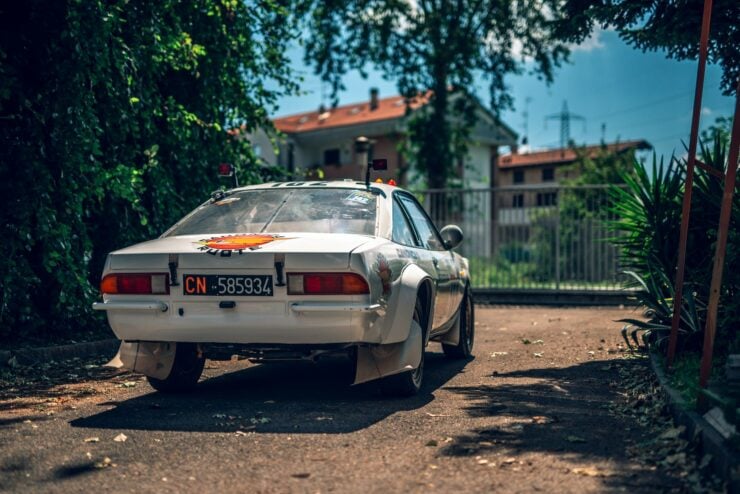
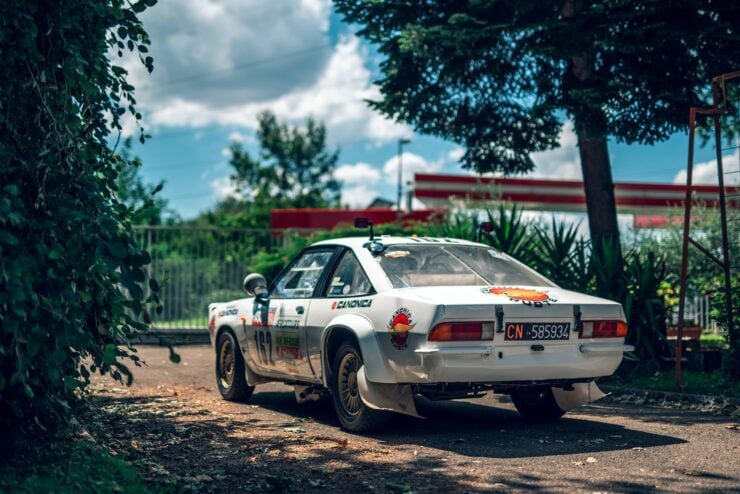
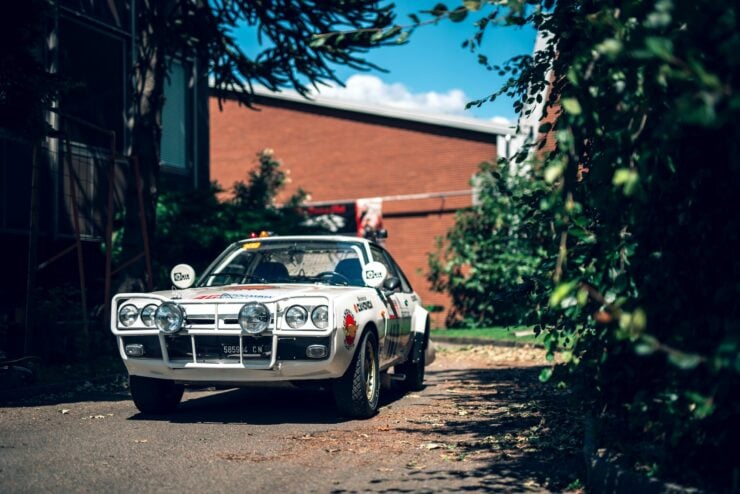
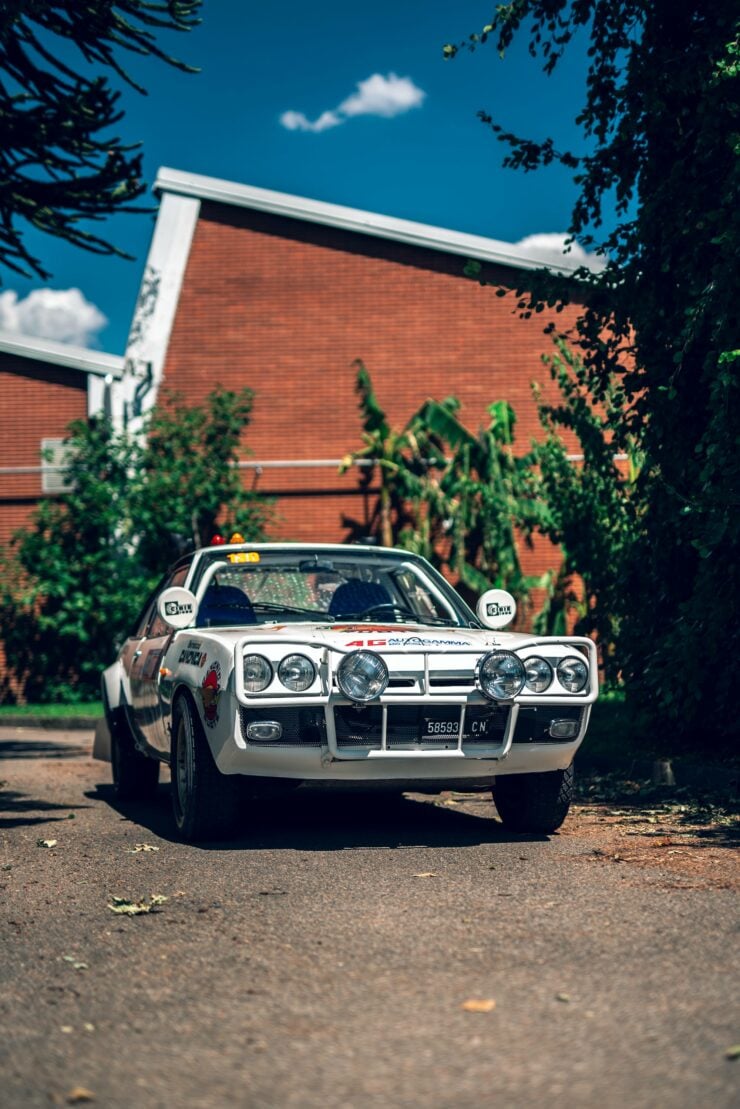
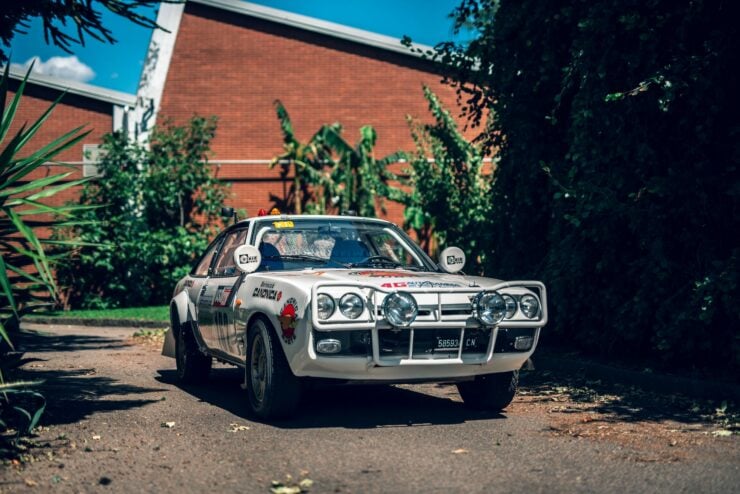
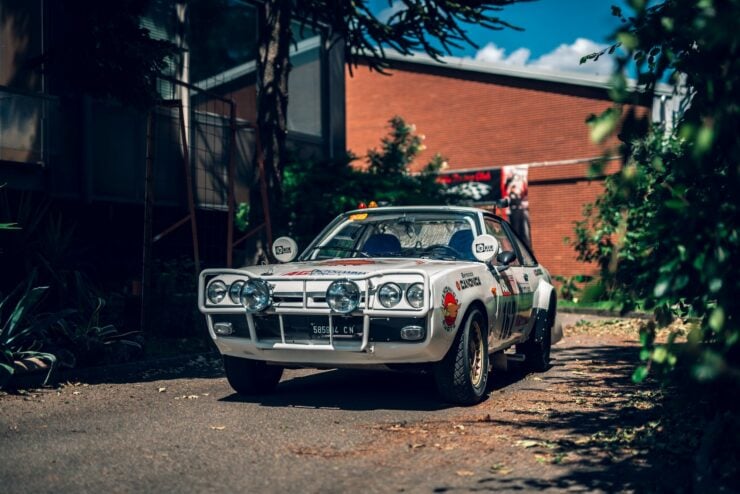
Images courtesy of Collecting Cars

